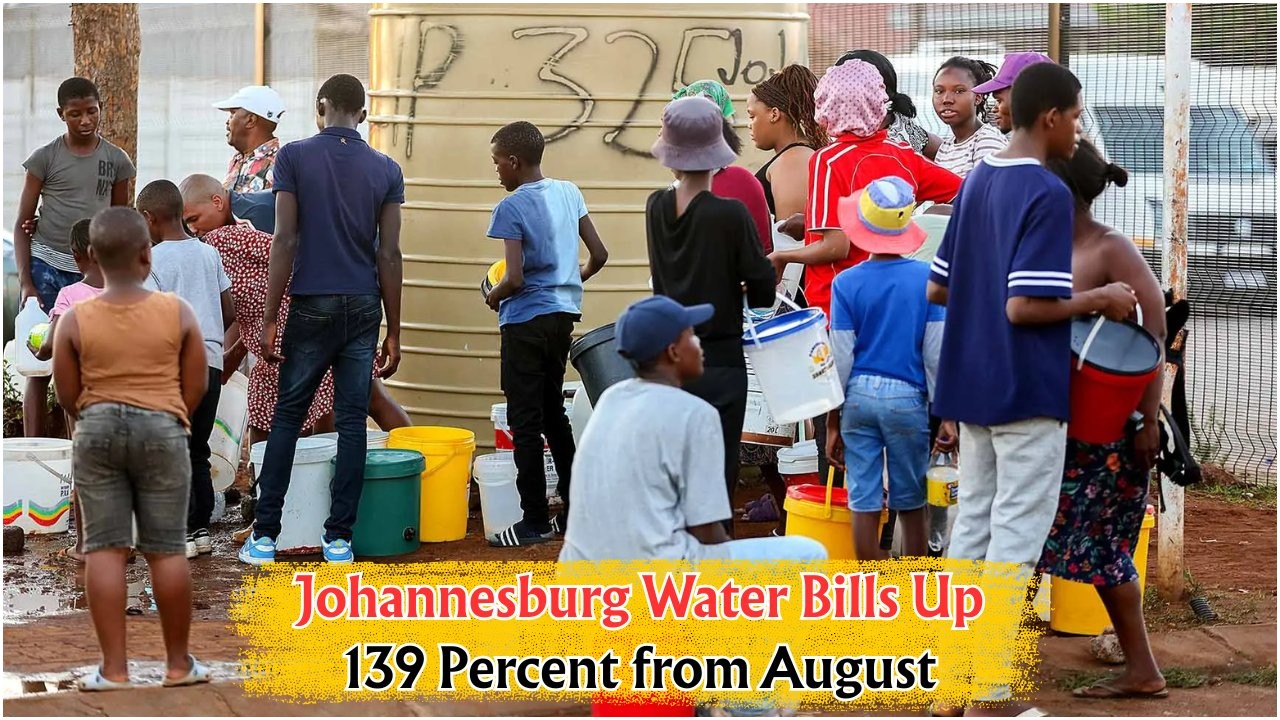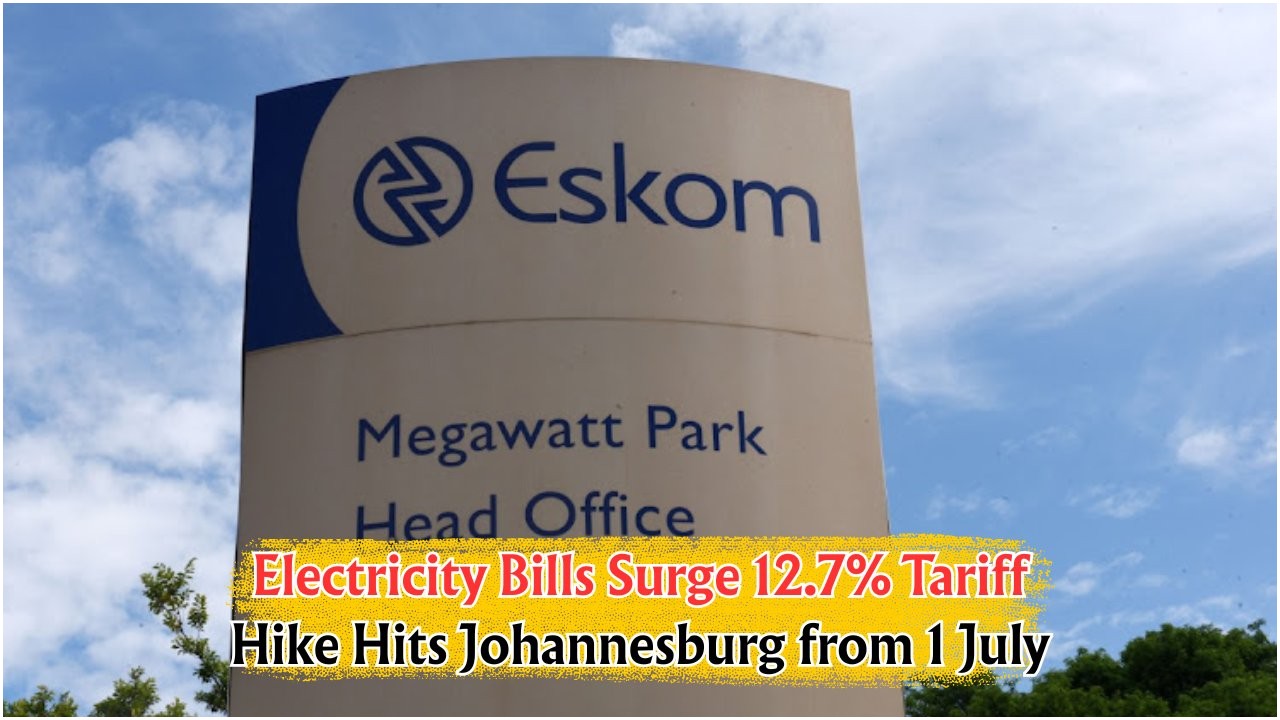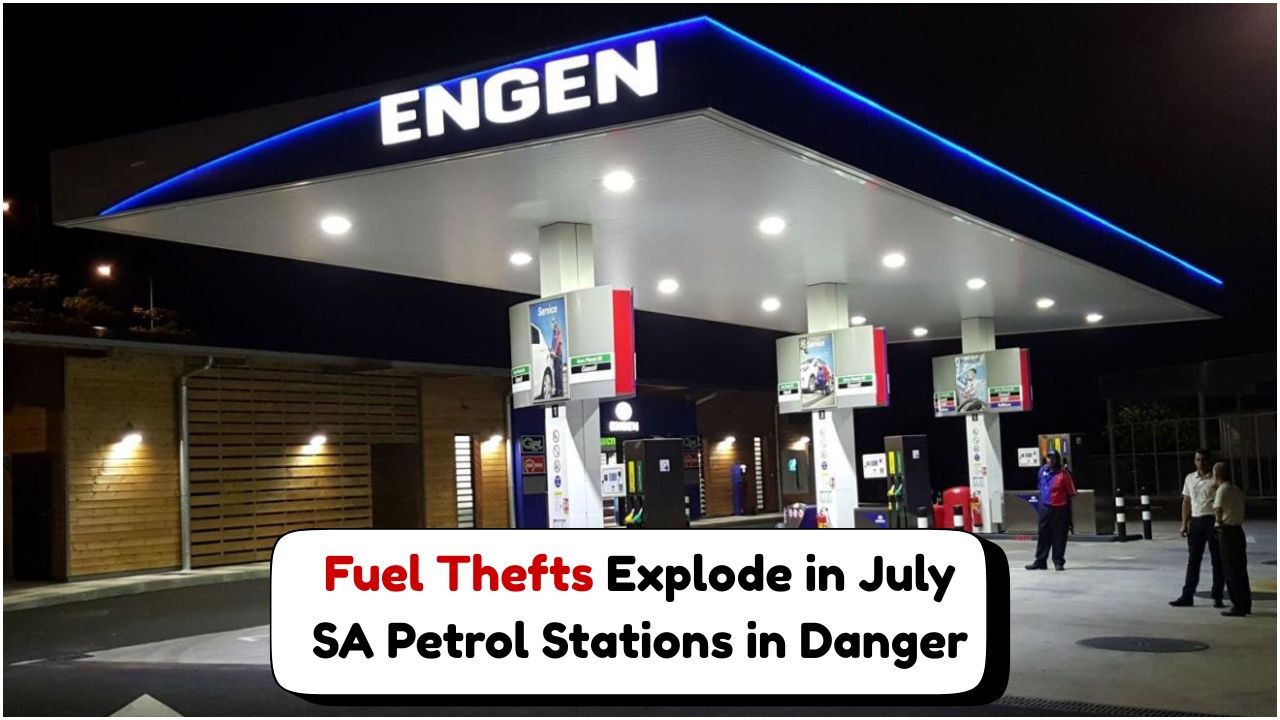Johannesburg Water Tariff Increase: Joburg residents are gearing up for a significant financial adjustment as a 13.9% hike in water tariffs is set to take effect from 1 August. This increase comes amid growing concerns about the sustainability of water resources and the financial strain it imposes on households. The City of Johannesburg has justified the increase as essential to maintaining and upgrading the water infrastructure, which is vital for ensuring a consistent supply of this precious resource. However, residents are voicing concerns over the added financial burden, especially amidst the broader economic challenges facing South Africa.
Understanding the 13.9% Water Tariff Surge in Johannesburg
The looming 13.9% increase in water tariffs is stirring discussions around household budgets and financial planning. For many residents, this marks a significant jump in their monthly expenses. The City of Johannesburg has emphasized that the increase is necessary to cover the rising costs of water treatment and distribution, as well as to fund critical infrastructure projects. These projects are deemed essential to counteract the impacts of climate change and population growth, which are putting increased pressure on the water supply system.
 Joburg Families Face 12.7% Electricity Tariff Hike Starting 1 July – Are You Ready for the Impact?
Joburg Families Face 12.7% Electricity Tariff Hike Starting 1 July – Are You Ready for the Impact?
- Improvement of water treatment facilities
- Upgrades to aging pipelines
- Implementation of water-saving technologies
- Expansion of water storage capacities
- Development of new water sources
Impact on Residential Water Bills
With the new tariffs set to take effect, residents can expect their water bills to reflect this change almost immediately. For an average household in Johannesburg, this increase means a careful reevaluation of water usage habits to mitigate the financial impact. Families are advised to adopt water-saving measures such as reducing shower times, fixing leaks promptly, and using water-efficient appliances.
| Water Usage | Previous Monthly Cost (ZAR) | New Monthly Cost (ZAR) | Increase (ZAR) | Percentage Increase |
|---|---|---|---|---|
| Low Usage | 300 | 342 | 42 | 13.9% |
| Medium Usage | 500 | 570 | 70 | 13.9% |
| High Usage | 800 | 912 | 112 | 13.9% |
City’s Justification for Water Tariff Increase
City officials have outlined several reasons for the tariff increase, citing the need to address long-standing infrastructure issues that have plagued the city’s water supply system. The funds generated from the increased tariffs are earmarked for various projects aimed at improving the reliability and efficiency of water services. These projects include:
- Replacing outdated water mains
- Upgrading pump stations
- Enhancing water quality monitoring systems
- Reducing water losses through improved leak detection
How Residents Can Adapt to Rising Water Costs
Adapting to the increased water tariffs requires a proactive approach from residents. By implementing water-saving strategies, households can manage the financial implications more effectively. Simple measures such as turning off the tap while brushing teeth, collecting rainwater for gardening, and installing low-flow showerheads can significantly reduce water bills.
- Invest in water-efficient appliances
- Regularly check for and repair leaks
- Use rainwater harvesting systems
- Educate family members on water conservation
- Implement greywater recycling for non-potable uses
Comparative Analysis of Water Tariffs in Major Cities
Comparing Johannesburg’s new water tariffs with those of other major South African cities reveals a trend of increasing costs associated with water supply. While Johannesburg’s 13.9% increase is significant, it is not an isolated case. Cities like Cape Town and Durban have also adjusted their tariffs upward, driven by similar factors such as infrastructure demands and environmental challenges.
| City | Percentage Increase |
|---|---|
| Johannesburg | 13.9% |
| Cape Town | 10.5% |
| Durban | 12.3% |
| Pretoria | 11.8% |
Public Reaction to Water Tariff Increase
The public response to the water tariff increase has been mixed, with some residents expressing understanding of the need for infrastructure improvements, while others feel the pinch of rising living costs. Community forums and local government meetings have become platforms for residents to voice their concerns and seek clarity on how the additional funds will be utilized.
- Concerns over affordability
- Calls for transparency in fund allocation
- Demands for improved service delivery
Strategies for Managing Household Water Expenses
To effectively manage household water expenses amidst rising tariffs, families can adopt a variety of strategies. By understanding their water usage patterns and identifying areas for savings, residents can mitigate the financial impact of the tariff increase.
- Set monthly water usage goals
- Utilize water-saving kits offered by municipalities
- Participate in community water-saving initiatives
Benefits of Water Conservation in Johannesburg
Emphasizing water conservation not only helps reduce individual water bills but also contributes to the sustainability of Johannesburg’s water resources. By adopting water-saving practices, residents play a crucial role in preserving this essential resource for future generations.
| Conservation Strategy | Potential Savings (Litres/Month) | Cost Saving (ZAR) | Environmental Impact |
|---|---|---|---|
| Low-flow showerhead | 500 | 20 | Reduced water wastage |
| Fixing leaks | 750 | 30 | Less water loss |
| Rainwater harvesting | 1000 | 40 | Supplement water supply |
FAQ Section
- Why is there a 13.9% increase in water tariffs? The increase is to fund essential infrastructure upgrades and address rising operational costs.
- When will the new water tariff take effect? The new tariff will be implemented starting 1 August.
- How can residents manage the cost impact? By adopting water-saving measures and monitoring usage, residents can manage their expenses.
- What are the long-term benefits of the tariff increase? Improved water infrastructure and sustainable supply are the key benefits.
- Are other cities also increasing their water tariffs? Yes, other major cities have also announced similar increases.









